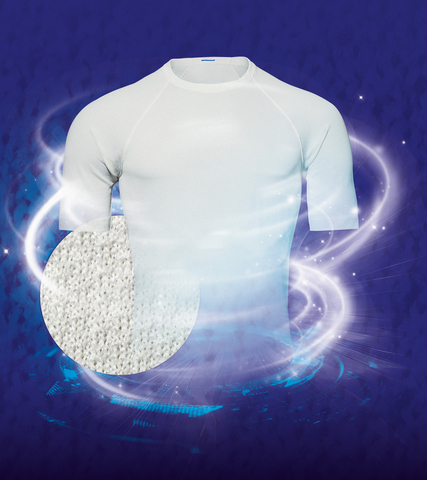The project created a plain white T-shirt, which was made from mixed and colored textile waste. By using CARBIOS’ biorecycling technology, the polyester was broken down using enzymes into its fundamental building blocks to produce biorecycled polyester. The quality of the recycled textiles is on par with oil-based virgin polyester.
“PUMA’s wish is to have 100% of our polyester coming from textile waste. Today’s announcement is an important milestone towards achieving this and making our industry more circular,” said Anne-Laure Descours, Chief Sourcing Officer at PUMA. “We now need to work together to make sure we can scale up this technology to make the largest possible impact. We’re excited to be part of this breakthrough and setting new standards for fibre-to-fibre recycling.”
The aim of the consortium is to collectively advance the textile industry's shift towards a circular economy by developing and industrializing CARBIOS’ enzymatic depolymerization technology to achieve 100% “fibre-to-fibre” recycling. By doing so, petroleum can be replaced by textile waste as a raw material to produce polyester textiles. These textiles can once again become raw materials, thus fueling a circular economy with the added benefit of a lower carbon footprint and the avoidance of waste that ends up in landfills or incinerators.
“It may look like an ordinary t-shirt, but make no mistake, the technology behind it is extraordinary,” said CARBIOS CEO Emmanuel Ladent. “To achieve “fibre-to-fibre” recycling is a technological feat. CARBIOS couldn’t have done it alone, so thanks to the collaboration with our consortium partners, we have overcome many technical hurdles together to produce the world’s first enzymatically recycled t-shirt made entirely from biorecycled fibres.”
Currently, the majority of recycled polyester in the industry is made from PET bottles, and only 1% of fibres are recycled into new fibres. The collective achievement marks an important milestone for the consortium’s ultimate aim of demonstrating a closed fibre-to-fibre loop using CARBIOS’ biorecycling process at an industrial scale.
PUMA
PUMA is one of the world’s leading sports brands, designing, developing, selling and marketing footwear, apparel and accessories. For more than 75 years, PUMA has relentlessly pushed sport and culture forward by creating fast products for the world’s fastest athletes. PUMA offers performance and sport-inspired lifestyle products in categories such as Football, Running and Training, Basketball, Golf, and Motorsports. It collaborates with renowned designers and brands to bring sport influences into street culture and fashion. The PUMA Group owns the brands PUMA, Cobra Golf and stichd. The company distributes its products in more than 120 countries, employs about 20,000 people worldwide, and is headquartered in Herzogenaurach/Germany.
About CARBIOS:
CARBIOS is a biotech company developing and industrializing biological solutions to reinvent the life cycle of plastic and textiles. Inspired by nature, CARBIOS develops enzyme-based processes to break down plastic with a mission to avoid plastic and textile pollution and accelerate the transition to a circular economy. Its two disruptive technologies for the biorecycling of PET and the biodegradation of PLA are reaching industrial and commercial scale. Its biorecycling demonstration plant has been operational since 2021 and a first industrial plant, in partnership with Indorama Ventures, is currently under construction. CARBIOS, founded in 2011 by Truffle Capital, has received scientific recognition, notably with the cover of Nature, and is supported by prestigious brands in the cosmetics, Food & Beverage and apparel industries to enhance their products’ recyclability and circularity. Nestlé Waters, PepsiCo and Suntory Beverage & Food Europe are members of a packaging consortium founded by CARBIOS and L’Oréal. On, Patagonia, PUMA, PVH Corp. and Salomon collaborate with CARBIOS in a textile consortium. Visit www.carbios.com/en to find out more about biotechnology powering plastic and textile circularity.





